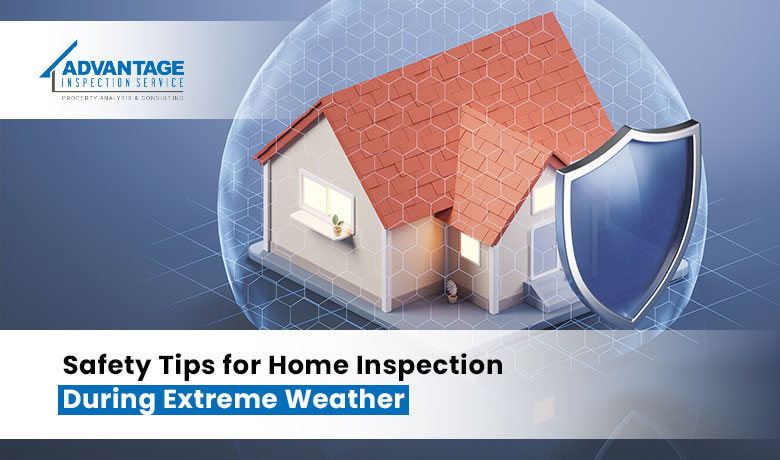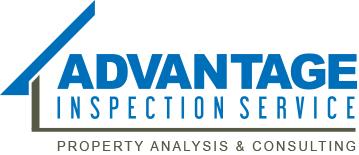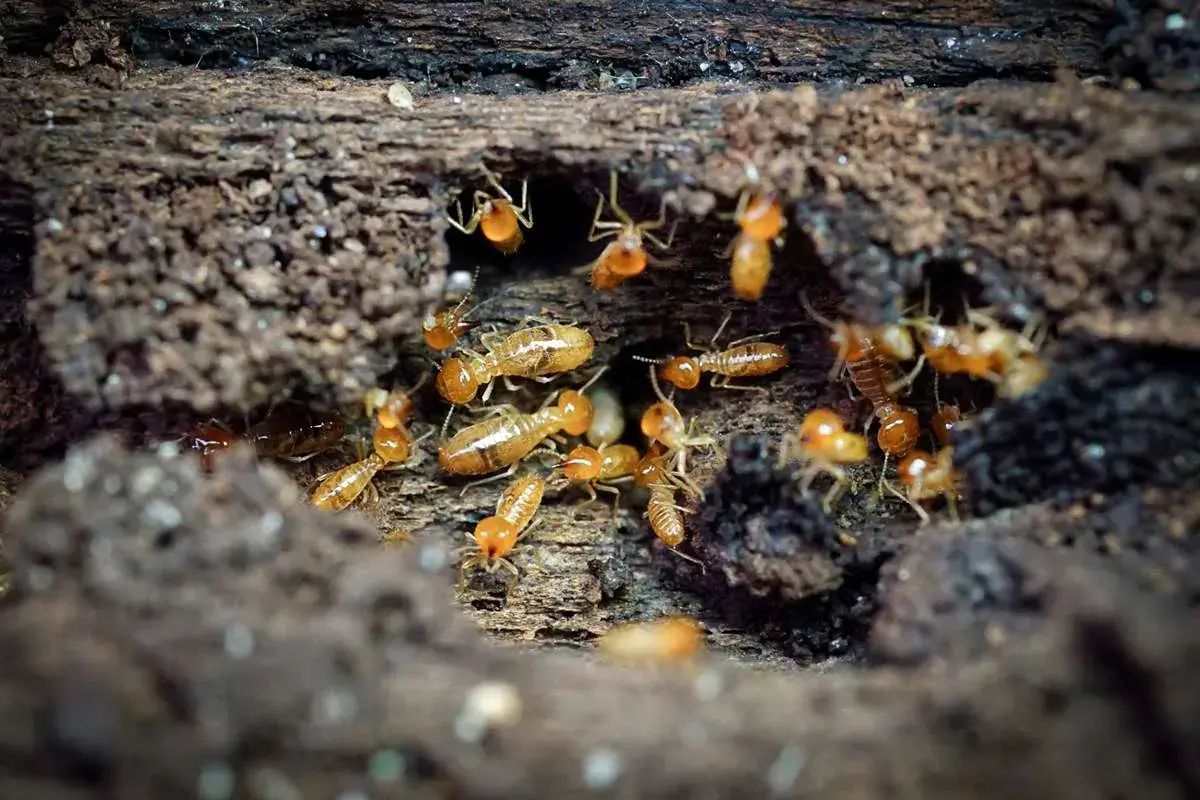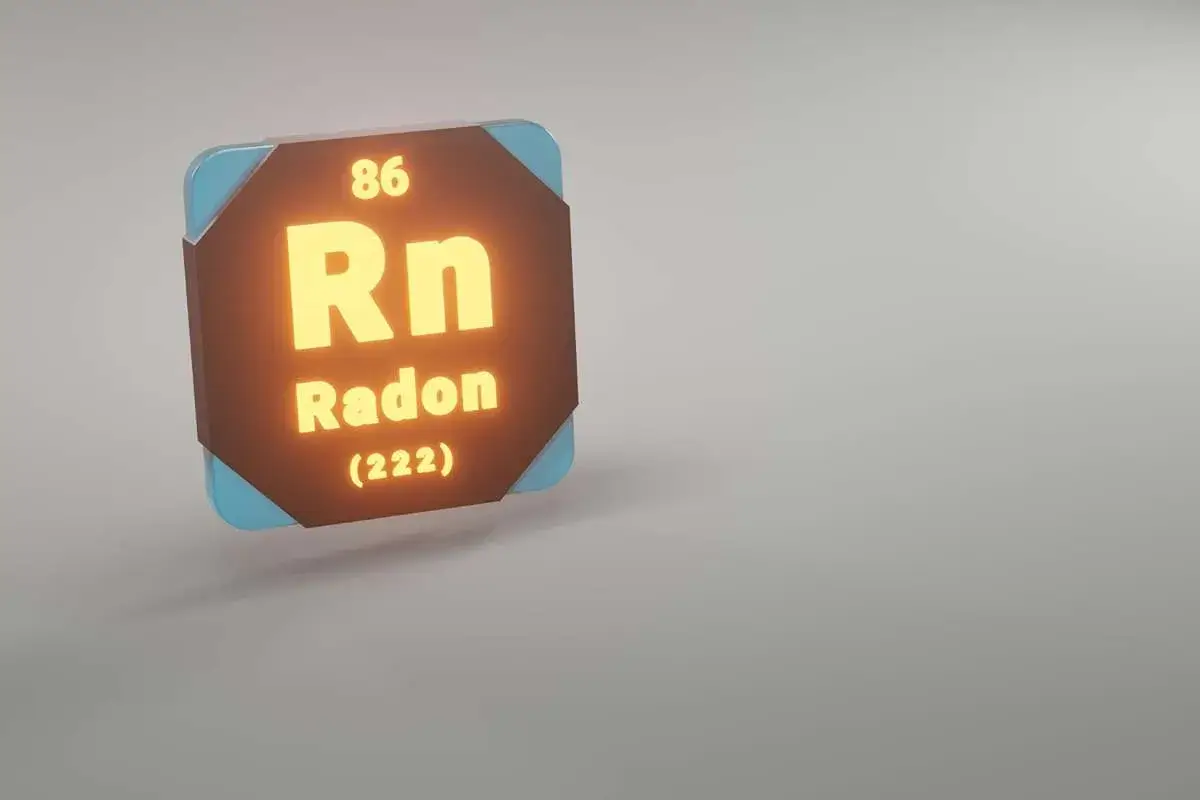When people think about home safety, they often picture locks on doors or smoke detectors…

Safety Tips for Home Inspection During Extreme Weather
When it comes to home inspections, weather conditions can play a crucial role in the process. Extreme weather can present challenges and safety concerns for both inspectors and homeowners. Whether it’s scorching heat, stormy day, heavy rain, or bitter cold.
Everyone’s safety is your very first priority. And understanding how to conduct a home inspection effectively in adverse weather conditions is essential.
The Dangers and Disadvantages In Extreme Weather
Home Inspections In the Rain
Clients and realtors may ask:
” Is inspecting in the rain a good idea?”
“Can you inspect a roof in the rain?”
However, the answer isn’t always a simple “yes” or “no.”
Not every city gets snow. But every home inspector deals with rain—though how much and how often varies.
When you inspect a home in the rain, be cautious of a slippery roof. Whether it is caused by the rain itself or lingering moss
It is to be noted that slick roofs increase your risk of falling.
Crawlspaces can get muddy or flooded as well.
While many inspectors don’t mind a little mud, a problem arises when crawl spaces have hanging, exposed wires, indicating potential electrocution.
Inspecting outdoor electrical panels and even some pool equipment follows the same principles. In any case, water and electricity are incompatible.
Windy Home Inspection Conditions
High winds, either alone or with rain, pose several risks.
The wind is loud; it throws off your balance. And it lifts debris into the air. Thus, it inhibits your visibility. Plus, without the obstacles,wind travels faster and stronger the higher up you go. The obstacles may be either trees or buildings.
Whether climbing a ladder or walking on a roof, a big gust of wind is a red flag.
If you’re considering getting on a roof in that wind, then that’s not a wise thing to do.
Lightning During a Home Inspection
Thunder always includes lightning.
Do you visualize a direct hit from lightning in a cartoon when you imagine it happening during an inspection?
Unfortunately, this isn’t the only danger you should be concerned about.
Metal is one of the safest materials for redirecting and containing lightning strikes. This helps prevent fires and danger to people inside the home.
In a storm, you run a higher danger of electrical shock if you touch something metallic.
Getting wet decreases your natural resistance even further. Therefore, an electric shock could turn from uncomfortable to fatal if you’re wet from the rain.
As a result, you should avoid being caught in any paths that a conductor makes for lightning.
Home Inspections in the Snow
Home inspections during the snow season are a big topic in this industry. Reaching and viewing important sites, including the roof, foundation, and porches, is challenging during heavy snow. Further, you may also cater to a blocked crawlspace or staircases.
On top of that, you can slip or fall because of snow and ice-covered areas like roofs, driveways, sidewalks, and other exterior surfaces.
For this reason, it’s best to avoid walking on freezing roofs unless you have to.
Furthermore, prolonged exposure to freezing temperatures without proper clothing can lead to:
- Hypothermia
- Frostbite
- Wind chill
Heat and Home Inspections
Hot weather can sometimes make home inspectors ill if they don’t undertake safety measures.
Rashes, exhaustion, and cramps can occur throughout the summer, in addition to heat stroke.
All of this happens from overheating. It can catch you by surprise. After all, naturally, all the heat rises to the attic. If it’s 70 degrees outside, you can expect temperatures 10-20 degrees warmer in the attic.
In addition, a dark, humid attic or crawlspace is particularly inviting to snakes in the summer. Below, you can read more about snake safety for home inspectors.
Safety Tips during Extreme Weather
Dress Appropriately
Wear weather-appropriate clothing. This can include waterproof gear, insulated footwear, and layers.
This can help you stay comfortable and protected from the elements.
Stay Hydrated
To avoid dehydration in hot temperatures, drink lots of water. While in cold weather, stay warm with hot beverages.
Be Weather-Informed
Stay updated on weather forecasts. This can help anticipate extreme conditions like snow, heatwaves, and heavy rain.
You can later plan accordingly after acknowledging the conditions
Use Safety Equipment
Make sure you have the required safety equipment. This can include gloves, non-slip boots, eye protection, and hard hats.
You might need to add more to the list depending on the weather conditions.
Inspect from a Distance
In extreme weather, avoid unnecessary risks by conducting preliminary assessments. You may inspect from a safe distance before approaching the property.
Check for Hazards
Look for slippery surfaces, fallen branches, ice, and other hazards.
Make sure there is nothing around that may compromise your safety.
Use Caution on Roofs
Exercise extreme caution when inspecting roofs to prevent slips and falls in snowy or rainy weather.
Mind Electrical Safety
Be aware of electrical hazards in wet conditions and avoid contact with exposed wires.
Contact with exposed wires can result in fire hazards, electrocution risk, and property damage.
Communicate
Keep lines of communication open with clients and colleagues. This effectively ensures everyone knows the weather challenges and safety precautions in place.
Know Your Limits
If conditions become too hazardous, don’t hesitate to reschedule the inspection for a safer time.
Safety as a Foundation for Quality Inspections
Conducting home inspections during extreme weather conditions requires additional input. Inspectors should commit to safety, diligence, and careful planning.
By following these safety tips, home inspectors can prepare for the challenges of harsh weather. They are also ensuring their personal and clients’ well-being.
For a successful inspection in adverse conditions, they all must stay informed, use the proper safety equipment, and dress appropriately.
Prioritizing safety protects inspectors and enhances the quality and accuracy of the inspection process. Ultimately benefiting both inspectors and homeowners.
Ensure Your Peace of Mind with Advantage Inspection Service! Schedule Your Health and Safety Home Inspection in Phoenix Today for a Secure and Informed Investment.



